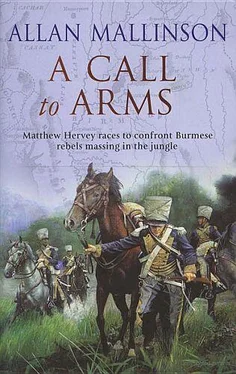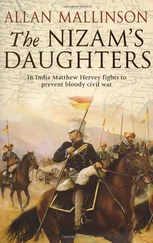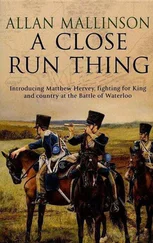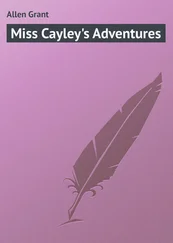The line had scarcely slowed, but Collins and the other sabrists were back in the saddle and in their places before another twenty yards. The next would be easy — no sentries, no alarm. They might go through the Burman lines and sabre every one of them in their sleep. Except that no luck ever held so long. Hervey knew he must stick with his plan, even if it meant surrendering some of the surprise that was his for the reaping.
The light was now enough to make out the whole of the camp, the white tents standing like snowcaps. ‘See your opportunity, Sar’nt-Major?’ Hervey’s voice was hushed, but his exhilaration evident.
Armstrong beckoned his guns. ‘All in lines — like regulars on Chobham Common. A shame we’re loaded with grape!’
Nevertheless they could wring havoc in minutes. And the Skinner’s sowars knew it, wheeling full about and unhitching the guns with the fervour of hounds on to a fox.
There were no orders. Portfires went to touch-holes just as soon as the gunners dropped their hands to signal ‘On!’ The guns belched flame and a thousand pieces of iron at the first tents not a dozen yards away, their reports becoming as one roar in that forest arena, all the louder for the enforced silence of the past days.
The nearest tents, and the ones just beyond, blew down like corn stooks in a sudden squall. Then came the screaming, a terrible, devilish noise that unnerved many a dragoon as he sat contemplating the gallopers’ work. For Hervey it meant nothing more than his prevailing over the enemy; it was what he wanted to hear. The sowars almost bayed as they reloaded, urged on by Armstrong waving his sword and shrieking every kind of profanity. Hervey urged them just as fervently, but below his breath.
The right-hand gun beat the left by barely a second. Another two angry explosions, louder than before with increased charges for the double shot, sent four two-pound balls bowling down the tent lines, doing untold slaughter within. Out from those still standing tumbled half-naked Burmans, dazed, not even able to take up their muskets from the arm-piles. With the sun rising above the forest, it was time to test the age-old business of cavalry. ‘And we shall shock them!’ said Hervey aloud.
‘Bible again, Cap’n ’Ervey?’ came the voice at his left.
‘No, Johnson. Only Shakespeare. Trumpeter, sound “Charge”!’
He would never have done it against formed troops — not put untried dragoons into a charge from the halt. But he didn’t need weight, only the noise of hoofs and the sight of sabres lowered. The Burmans ran this way and that, like rabbits scattering before greyhounds. One or two ran into swords, but for the most part the dragoons had not the skill to despatch their prey. It did not matter. The Burmans were broken.
‘Go to it, Harry,’ called Hervey to Seton Canning, then looked about for his trumpeter. ‘Storrs!’ he bellowed.
‘Sir!’ called Storrs, struggling to remount the other side of a tent.
‘What in God’s name—?’
‘Didn’t see the guy-rope, sir.’
Corporal Ashbolt and Johnson closed to help him.
‘Look sharp, Storrs! I hope that bugle of yours is whole. Sound “Rally”!’
Storrs, back in the saddle, blew it well — octave intervals, by no means easy when winded. ‘Good man,’ cheered Hervey. ‘Mr Vanneck!’
The cornet was close by. There was blood on his sabre. ‘Well done, Myles. Take your picket off. Drive well up the road to begin with. I’ll send the guns up when I can.’
‘Very good, sir.’ He turned and started gathering his half-dozen. Hervey rode back to the guns, which the sowars had already hitched up. ‘ Shabash, sipahi! Shabash! ’
Armstrong looked impressed.
‘ Very good shooting indeed!’
The quartermaster had not been idle during the skirmish. Hervey saw him and his men already piling oil and kindling into the barges. The sooner they could get the canvas in, the better. Hervey told Seton Canning to have the Burmans begin the work for them.
The surgeon had difficulty bringing his horse to a halt. He had work to do and was keen to be about it. ‘Have a care, Ledley!’ called Hervey, and then turned to Johnson. ‘Go and help the surgeon dismount,’ he said despairingly.
Ledley made straight for the stricken tents. From the shrieks and groans he knew that his skill was sorely needed, though he feared he would not be able to do much but staunching and binding. He was the only man in the troop who wished the Burman battalions would come soon, for they would be the only hope for their fallen comrades. Hervey watched as the surgeon set about the carnage with his assistants, coolly assessing the scale and priorities of his task.
After days of moving at a snail’s pace through the forest, the sudden liberation made everything seem as if in double time. And the exhilaration of the assault, and the utter rout, gave each man an ardour that the duke himself would have been proud to see. But Hervey knew this might change at any moment with the arrival of the Burman battalions. He looked at his watch: it was half an hour since they had crept out of the forest, and not much less since the first gun had fired. If the Burmans were encamped anywhere within five miles he could expect some of them here within an hour, for the noise of the galloper guns had surely carried that distance, even through the forest. He surmised the Burmans would not have made camp closer than that, for would they not have pressed on the extra hour or so to where canvas awaited them? If they had cavalry, they would be so much the quicker, but Somervile had not spoken of it. Why, indeed, would they have cavalry if they could not embark them?
Hervey took his compass from the carrying case on the saddle. The needle swung to where he expected, but he wanted to make sure beyond the influence of the iron and steel about him. Out of the saddle he climbed, unfastened his swordbelt and handed it and the reins to Johnson, then walked ten paces before he was satisfied that the compass reading was a true one.
‘Is it all right, Cap’n ’Ervey, sir?’ enquired Johnson, confident equally in his officer and in officers’ apparatuses.
‘Yes, it’s all right, Johnson. Yon other road into the forest goes just as it should. I’d be powerfully tempted to take it homewards were it not for French and the others.’
Johnson handed him back his swordbelt and reins. ‘I’ll ’ave a prog around, if tha doesn’t mind. I’ll peg this’n, an’ let ’im ’ave a bit o’ grass.’
Hervey had no objection; his second charger had its head down already. He climbed back into the saddle. ‘Search those bigger tents first — maps, letters, anything. I’ll take a look myself when I’ve had the guns moved.’
The quartermaster and Armstrong had got all but five of the barges on their bank ablaze. Another quarter of an hour and all would be done this side. Some of the Burmans were already taking canvas across the bridge, their double time prompted more by the sabres of Seton Canning’s men than natural ardour. Hervey wondered if their spirit would return once the troop were gone, if they would try to follow and harry them. That was another reason to have them all on the far side of the river — and the bridge burned — when the time came.
He glanced over to where the surgeon was working. He would not go to him, though. He would not trouble himself with the sight of dead and dying men when there might be more yet to add to the butcher’s bill. He had never been qualmish of such things — well, rarely — but he had never been indifferent to what the ball and the cutting edge did to a man’s flesh.
‘Guns ready, sahib!’ reported the daffadar, his yellow kurta begrimed with black powder smoke.
‘Very good, daffadar; follow me if you please.’ Hervey reined right towards the white elephant road, but before he led them away he would speak with his lieutenant. ‘Mr Seton Canning!’
Читать дальше










